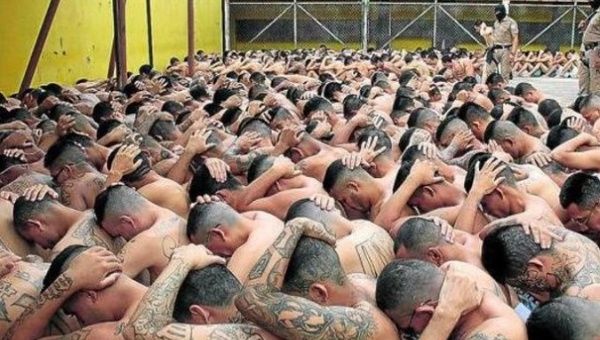
The law would enable judges to deliver sentences more swiftly to criminals and prevent members of these criminal organizations from being released
San Salvador
On Wednesday, the Salvadoran Congress approved reforms to the “Law against Organized Crime” to enhance penalties for gang leaders and to conduct collective criminal proceedings.
The first reform establishes criminal procedures based on gang groups or cells, meaning that those arrested during the “State of Exception” could be grouped into specific structures to undergo a single criminal process.
This would enable judges to deliver sentences more swiftly to criminals and prevent members of these criminal organizations from being released.
Opposition lawmaker Jaime Guevara, however, pointed out that the reform represents a risk and a threat to innocent prisoners awaiting a fair legal process in jail.
“Anyone could be included in a gang group to face a collective criminal trial instead of an individual one, which violates due process,” he noted.
Legislator Claudia Ortiz stated that the reform “will only serve to lighten the workload for the prosecution, so they no longer have to investigate.”
During the state of exception, 71,770 people have been detained, as acknowledged by Security Minister Gustavo Villatoro. According to recent disclosures from humanitarian organizations, the number of “direct victims” of human rights violations reached at least 5,490.
NGOs have registered 13,581 legal violations during the state of exception, 95.3 percent of which correspond to arbitrary detentions that took place between March 2022 and June 2023.
The Salvadoran Congress also increased the jail term for gang leaders. The maximum sentence for these leaders were extended from 45 to 60 years of imprisonment.
In March 2022, lawmakers established penalties ranging from 40 to 45 years in jail for “creators, organizers, heads, leaders, financiers, or kingpins.” Prior to this reform, gang leaders faced sentences of 6 to 9 years.
All of these legal reforms were carried out by a congress controlled by Salvadoran President Nayib Bukele, who holds the majority.
________________
Courtesy: TeleSur (Posted on July 27, 2023)